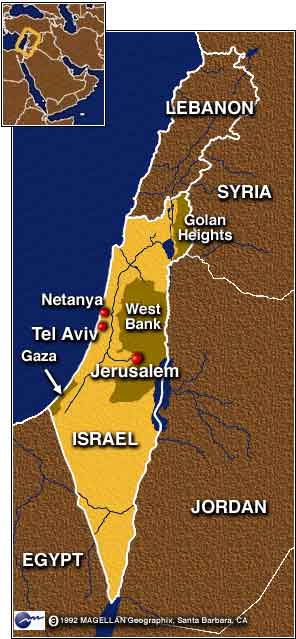International media protest three-week access denial to Gaza
 Tel Aviv - International media organizations stepped up their protest against Israel Thursday over its "unprecedented" refusal to allow foreign journalists to enter and cover the Gaza Strip for the past three weeks.
Tel Aviv - International media organizations stepped up their protest against Israel Thursday over its "unprecedented" refusal to allow foreign journalists to enter and cover the Gaza Strip for the past three weeks.
The entry ban is a "serious violation of freedom of press which runs counter to Israel's own claim that it is a democracy which respects press liberty," Steven Gutkin, the chairman of the Foreign Press Association (FPA), told a news conference in Tel Aviv.
He said the FPA, which represents foreign journalists working in Israel and the Palestinian territories, had demanded an urgent meeting with Israeli Defence Minister Ehud Barak to receive an explanation for the sudden denial of access. So far, it had received no response.
The FPA also submitted a petition earlier this week to Israel's supreme court, which gave the Israeli government until December 9 to respond.
In addition, the editors in chief, presidents and directors of major news outlets such as ABC news, the BBC, CNN, the Associated Press, Reuters and the New York Times have sent a letter to caretaker Prime Minister Ehud Olmert, urging Israel to "immediately" restore access to Gaza for foreign reporters.
Gutkin, of the Associated Press, said his and other media organizations had also enlisted the help of foreign governments, who have protested to Israeli ambassadors across the world.
He complained that "no plausible explanation" was given for the unexpected entry ban, which reversed Israel's policy of free access to foreign reporters despite its stringent blockade of the strip over the past years.
Israel has said no specific ban on the entry of journalists exists but that the denial of access is part of a policy to allow only essential humanitarian supplies into Gaza so long as rocket attacks from the strip by Palestinian militants continue.
It imposed the near-total closure amid a breakdown in a five- month-old truce after a November 4 clash between Israeli soldiers and Hamas fighters.
But Gutkin speculated that "some worrying comments" by some Israeli officials, who had complained about an anti-Israeli bias in foreign journalists' coverage of the Gaza Strip, hinted at an alternative motive.
Connie Mus, of Dutch RTL television, said a written reply by Israel's ambassador to the Netherlands to the protest was also worrying. He quoted the ambassador as saying in his reply that "maybe it is time" for international journalists to cover only the effect of the Palestinian rocket attacks in the southern Israeli town of Sderot.
Mus, also a member of the FPA board, said the body decided to fight the Israeli government in court despite the danger of a precedent if it ruled in its favour, "because if we accept what is happening in Gaza, the West Bank will be next."
"We see no justification for this ban," Joe Floto of the British Broadcasting Corporation told the news conference. He pointed out that currently the only countries denying access to foreign journalists were North Korea, Burma and Zimbabwe, adding he would hate to see Israel join "that very exclusive list." (dpa)